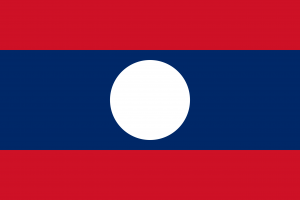Language/Lao/Grammar/Superlatives
| ◀️ Comparatives — Previous Lesson | Next Lesson — Common Hobbies ▶️ |
Superlatives in Lao
Congratulations, you've made it to the last lesson in the "Complete 0 to A1 Lao Course"! In this lesson, we will be focusing on forming and using superlatives in Lao. Superlatives are words used to describe the highest degree of quality or the most extreme condition of a noun. They help us to compare and contrast things and express our opinions on a particular subject. Let's dive in!
Forming Superlatives in Lao
In Lao, superlatives are formed by adding one of the following particles after the adjective:
- ໃຫຍ່ດີ (yai di) - for adjectives ending in a consonant
- ໃຫຍ່ (yai) - for adjectives ending in a vowel
Here are some examples:
| Lao | Pronunciation | English Translation |
|---|---|---|
| ສູງໃຫຍ່ດີ | suŋ jai di | biggest |
| ຄວາມໃຫຍ່ | khwaːm jai | happiest |
| ຄວາມໃຫຍ່ດີ | khwaːm jai di | saddest |
| ຕະຫລາດໃຫຍ່ | ta laːt jai | tallest |
Note that the superlative particle follows the adjective and comes before any noun the adjective modifies.
Using Superlatives in Lao
Superlatives are used when we want to describe the most extreme or highest degree of quality of a noun. Let's see some examples:
- ສູງໃຫຍ່ດີ (suŋ jai di) - "the biggest"
- ຄວາມໃຫຍ່ (khwaːm jai) - "the happiest"
- ຄວາມໃຫຍ່ດີ (khwaːm jai di) - "the saddest"
- ຕະຫລາດໃຫຍ່ (ta laːt jai) - "the tallest"
Remember to use the correct superlative particle depending on the ending of the adjective.
Irregular Superlatives in Lao
Some adjectives have irregular superlative forms. Here are some examples:
| Adjective | Superlative |
|---|---|
| ຢາກ | ຢາກປະສົງ (yak pasong) |
| ເຫັນໄຟ | ສັງຊາດ (sangsad) |
| ປາ | ປະສົງ (pasong) |
| ສະຫລາດ | ວ່າ (wai) |
These irregular superlatives are often used to convey more specific meanings, so it is important to learn them as you encounter them in your Lao studies.
Practice Exercises
Now that you understand how to form and use superlatives in Lao, it's time to put your skills to the test! Practice using superlatives with the following exercises:
- Form a superlative for the following adjectives: ໜ້ອຍ (noy) - small; ນ້ອຍຕາມ (noy tam) - narrow; ຄວາມນ້ອຍ (khwaːm noy) - happy; ຄວາມລ້າຍ (khwaːm lai) - tired
- Complete the following sentence with a superlative: "ຮ້ອນໃຫຍ່ດີ ເປັນ ______ ______ ______ ______ ______ ______ ______ ______ ______"
- Translate the following sentences into Lao using superlatives:
- "This is the most beautiful view I have ever seen."
- "My mother is the best cook in the world."
Cultural Insights
In Lao culture, people avoid using negative superlatives to describe people or things. For example, instead of saying "the worst restaurant," Lao people often say "the not-so-good restaurant." This is because negative superlatives are considered impolite and offensive. It is important to keep this cultural sensitivity in mind when using superlatives in Lao.
In addition, Lao people often use superlatives to express their appreciation for others. For example, they may call their elders "ທ່ານປະສົມປະສານໃຫຍ່" (thao pasom pasanai yai) which means "the best parent/grandparent in the world". This shows respect and gratitude towards the elderly generation.
Congratulations, you have completed the "Complete 0 to A1 Lao Course"! We hope you have enjoyed learning Lao with us and feel confident to continue your language journey.
Other Lessons
- Personal pronouns
- Plurals
- Question Words
- Future Tense
- Prepositions
- Negation
- Comparatives
- Give your Opinion
- Past Tense
Sources
| ◀️ Comparatives — Previous Lesson | Next Lesson — Common Hobbies ▶️ |

